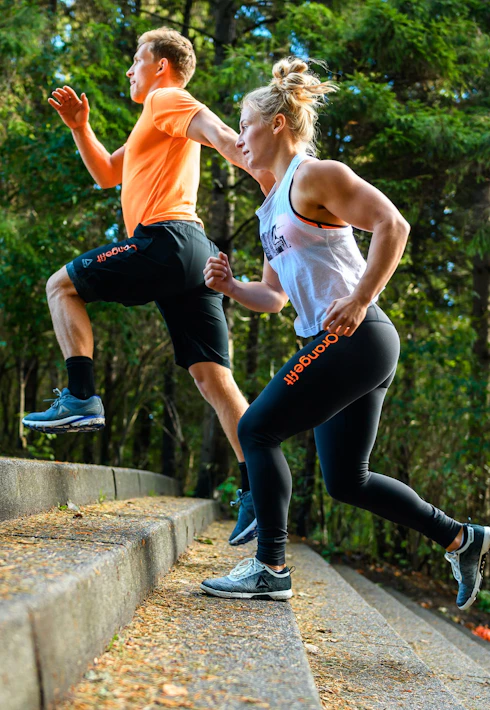Time to read: 4 min
What to eat before and after exercising?
When you're getting back into sports, you often pay more attention to your diet. Wise, because what you eat determines how you perform and how you feel. Additionally, you also want your lifting and pushing to have been worth it.
In this article, we'll tell you what you should eat around your workouts and whether the timing of your meals matters.
Is meal timing important?
Somewhat. The timing of your meals does affect your performance, but what you eat is even more important. The ratio of macronutrients (carbohydrates, proteins, fats), the quality and quantity of your food, are actually much more important than the exact times you eat. Remember this: unless you're a top athlete or a competitive athlete, timing isn't that important.
Key guidelines
So what should you pay attention to? These are the key guidelines for people who engage in recreational to competitive sports.
- 2-3 hours before exercising - Eat a healthy complete meal and make sure you drink enough (at least 500 ml). This way, you'll have enough energy and fluids.
- 1-2 hours before exercising - Eat something light and easily digestible, such as a banana or a bar. Large meals or products that contain a lot of fats, proteins, and/or fibers cannot be processed in time by your body and can cause problems.
- During exercise - During exercises lasting 0 to 90 minutes, you mainly need fluids such as tap water or Active Water. About 400-800 ml per hour. If you exercise intensively for more than 1.5 hours at a stretch, you can also eat an energy bar or gel during exercise to keep your energy levels up. If you exercise for a shorter period, you don't need extra carbohydrates.
- Within 1-2 hours after exercising - Eat a meal with a good combination of carbohydrates, high-quality proteins, and healthy fats. Also, drink enough to replenish your fluid loss.
Note: These are guidelines, not rules. Experiment to find out what works best for you.
Protein around your workout
If you exercise for less than 1.5 hours, you use less of your glycogen stores during a workout than endurance athletes. Extra carbohydrates are therefore not necessary. However, it's beneficial to eat enough protein (about 20-40 grams) around your workout. After a workout, your body has a higher protein requirement. It also helps to prevent (severe) muscle soreness.
For inspiration, you can take a look at this list of protein-rich foods. Or make it easy for yourself and discover our protein shakes.
Do you need extra carbohydrates?
For endurance athletes (training for longer than 1.5 hours), it is important to eat a little more carbohydrates (about 70 grams or more) before they start exercising. As an endurance athlete, you burn more energy during your efforts.
Importance of hydrating
Hydrating is key, and this applies to everyone. An average adult is advised to drink an average of 1.5 to 2 liters of water per day. But when you exercise, you sweat, causing you to lose more fluid. Therefore, it is important to drink even more. Like plain water or our Active Water.
Conclusion
The right nutrition around exercise can make a difference in your sports performance. A very strict timing is especially important for real top athletes and competitive athletes. Are you less competitive and do you mainly exercise to stay fit? Then healthy and varied eating is the foundation and a few simple guidelines can already help you achieve your goals for the most part.
